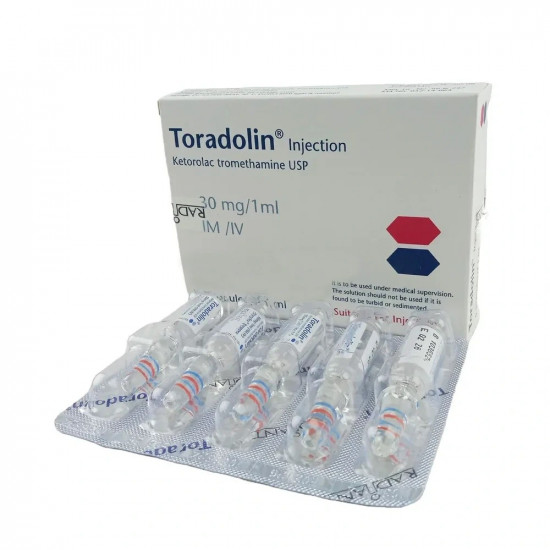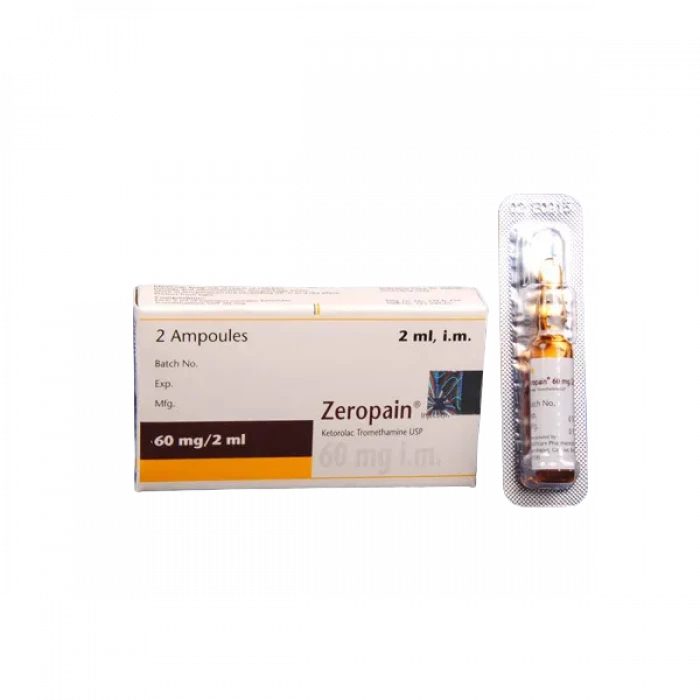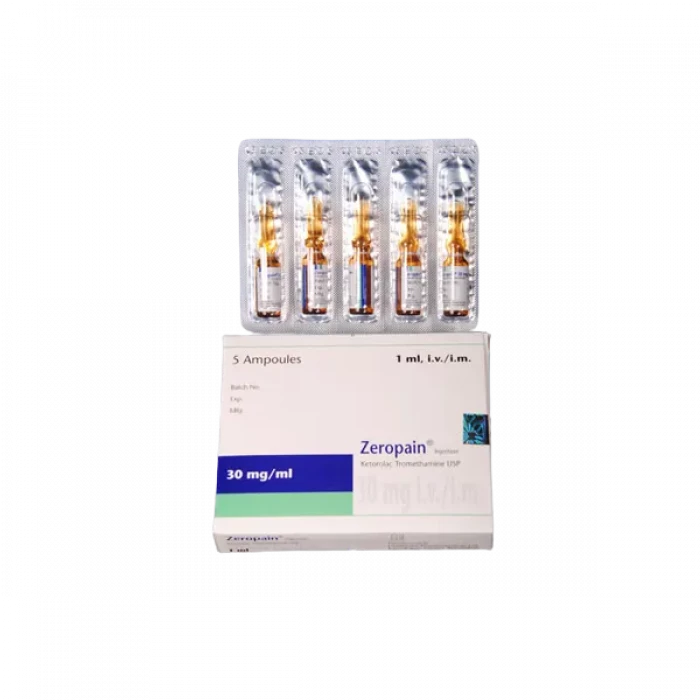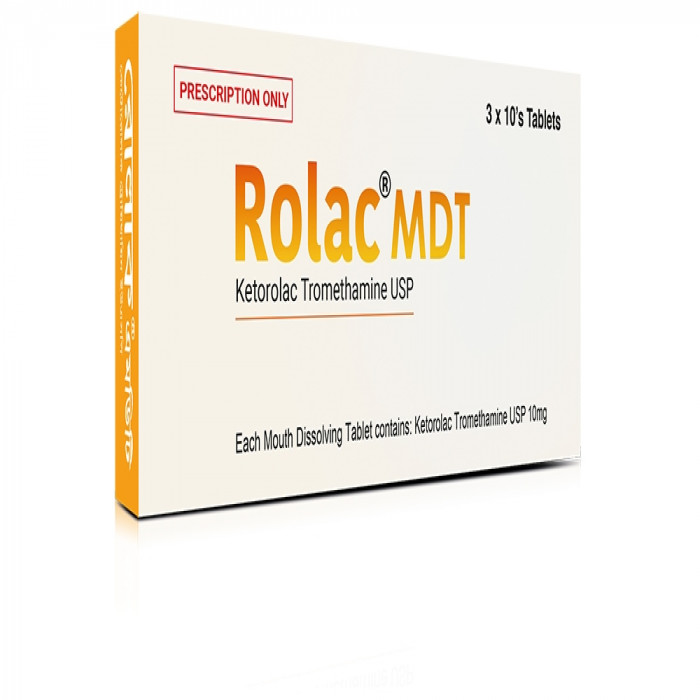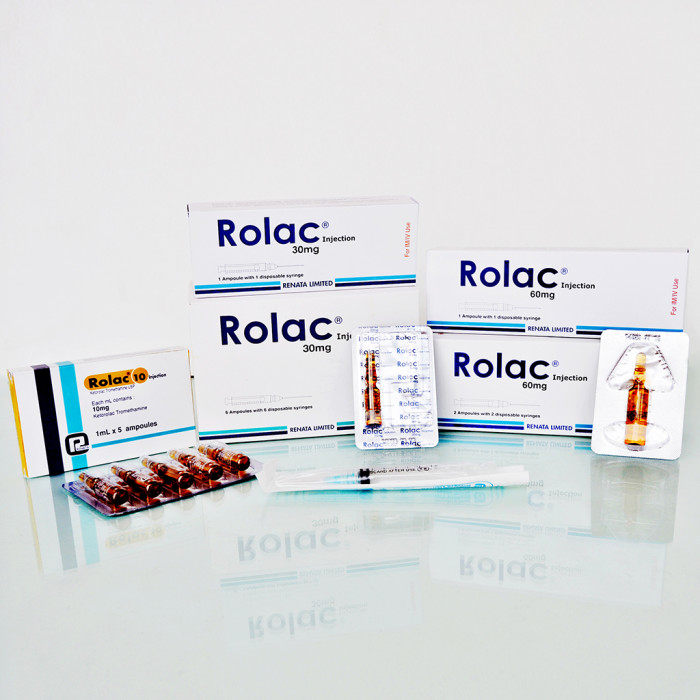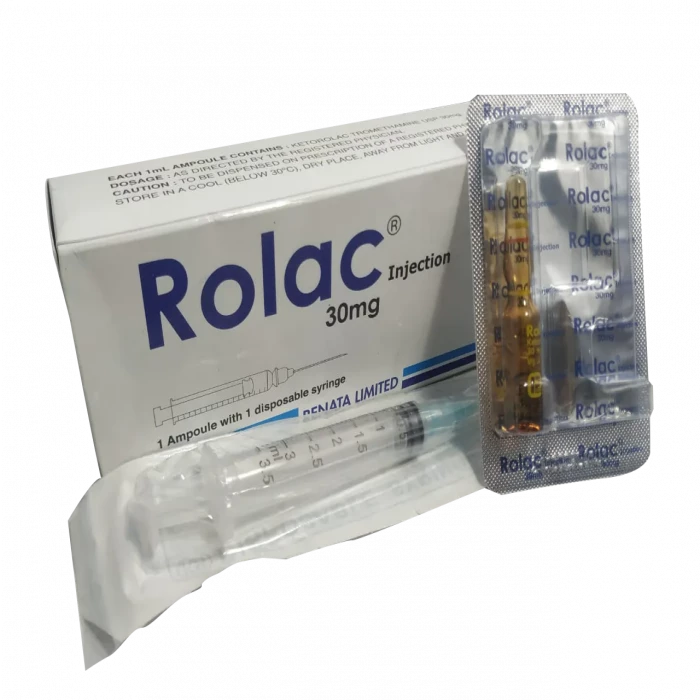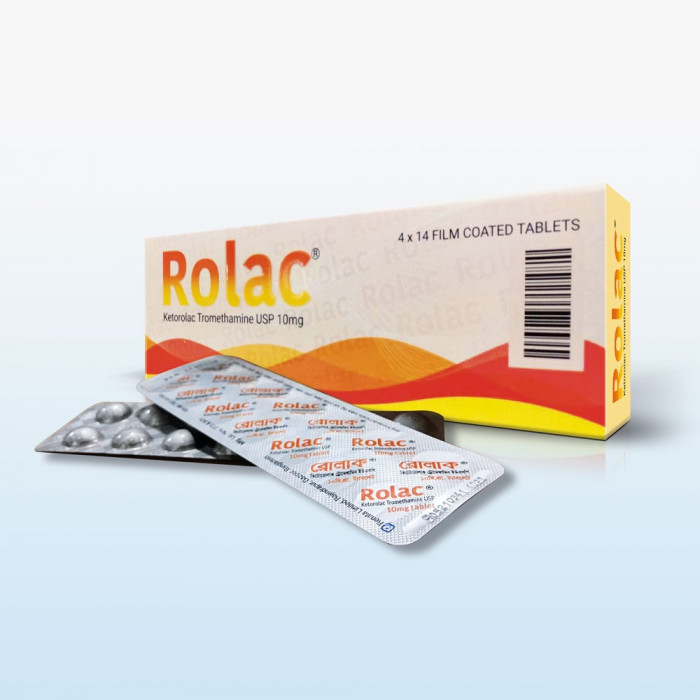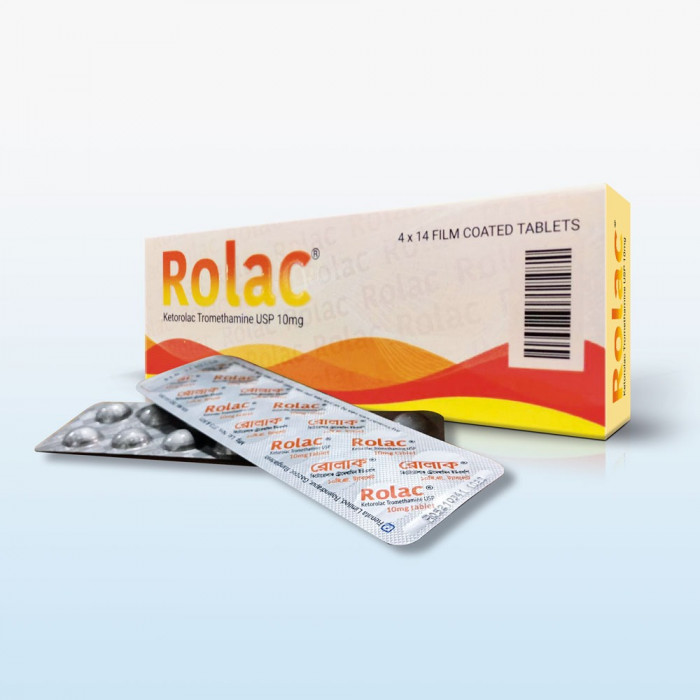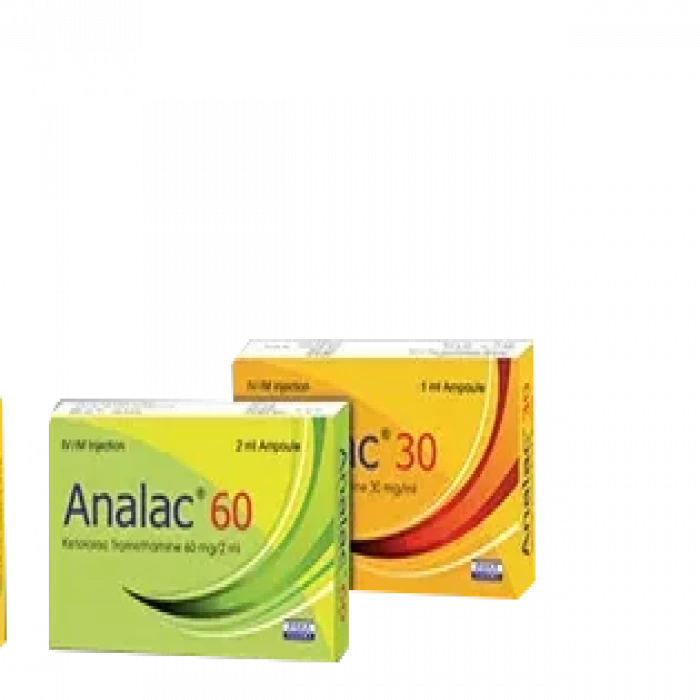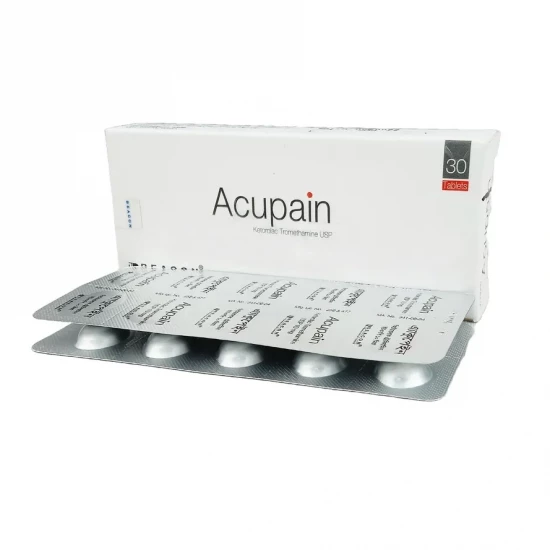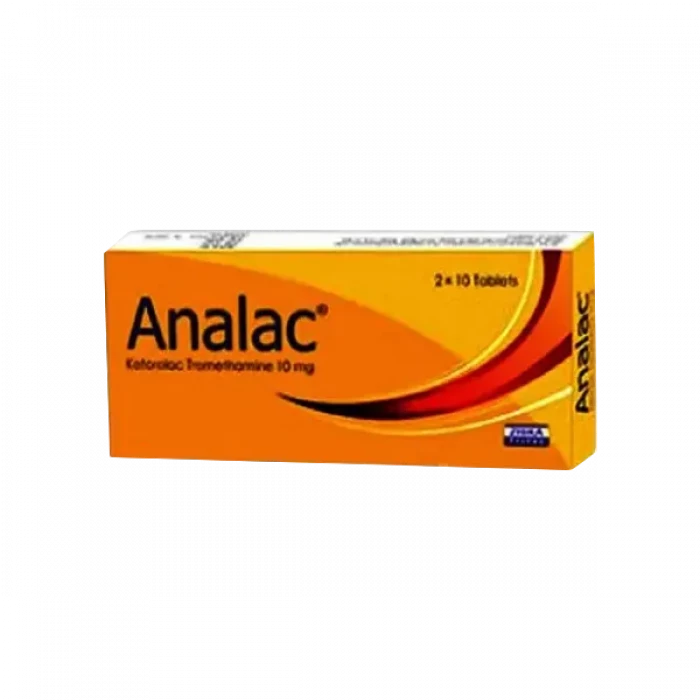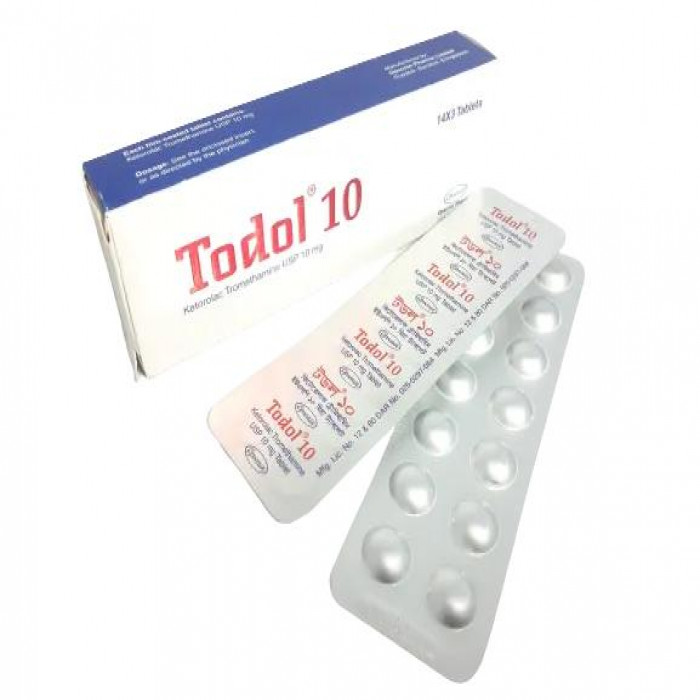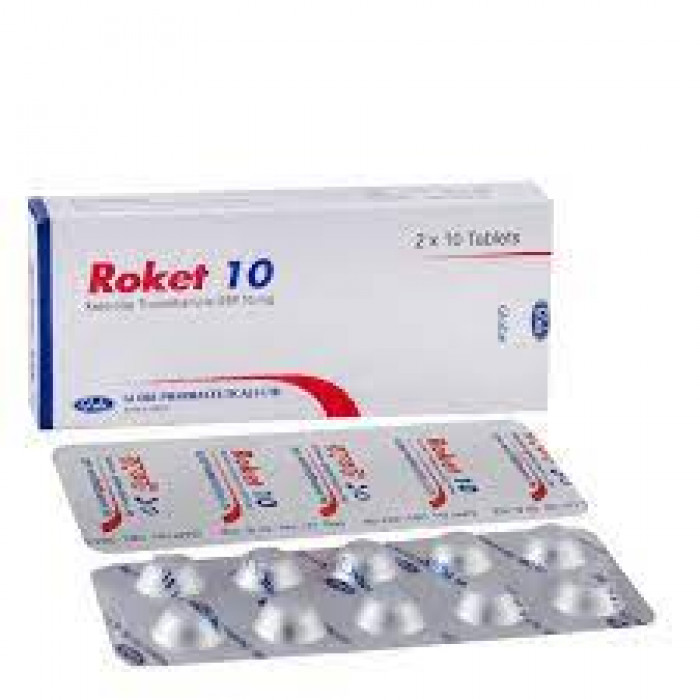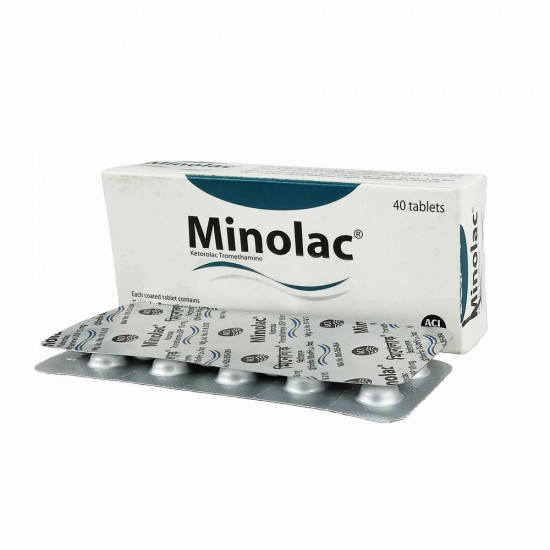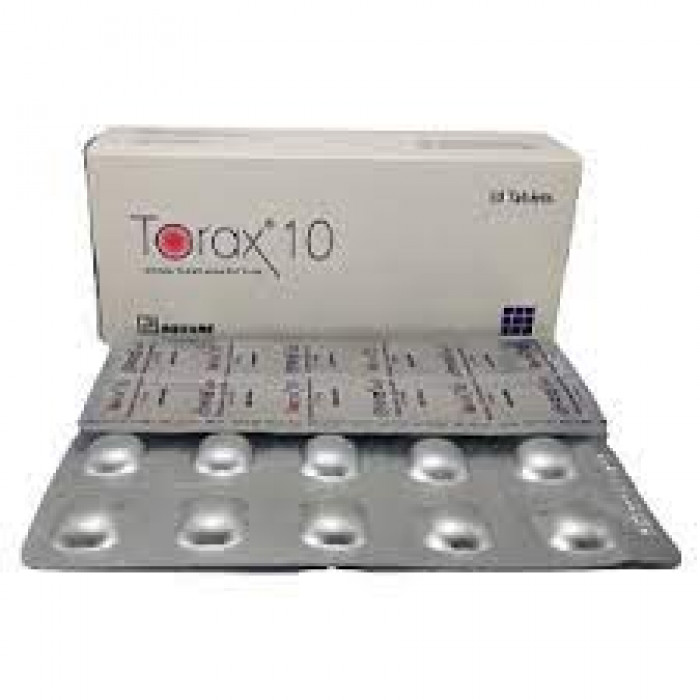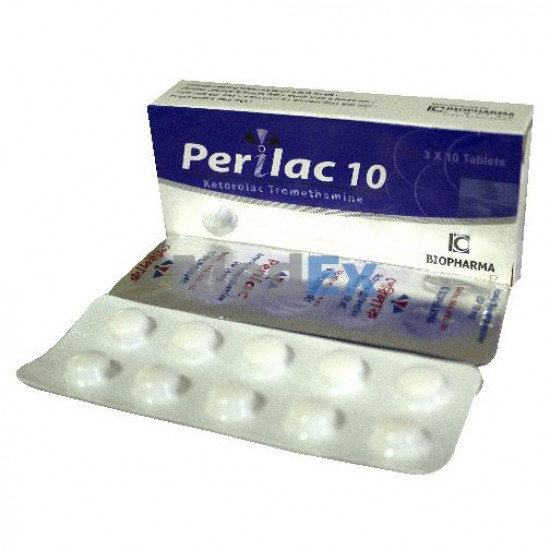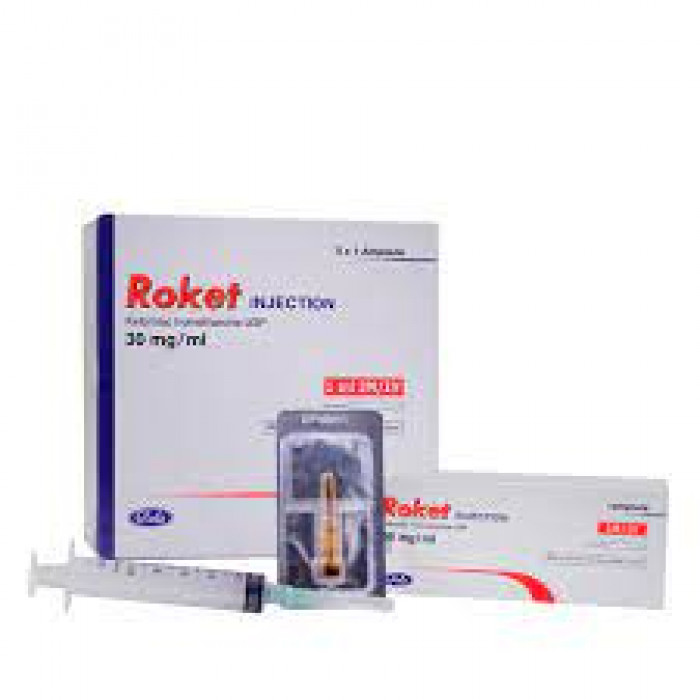
✔ 100% Authentic Product
👁️ Currently Viewing 1630
Roket IM/IV Injection 30mg/ml
Ketorolac 30mg/ml is used for pain relief. It relieves pain in conditions like post-operative pain.
Discount
Price: ৳ 52
MRP:
৳
55
5%
Off

100% Genuine Products, Guaranteed

Safe & Secure Payments, Always

Fast, Secure & Efficient Delivery

Proper Packaging
 Cash on Delivery - All over Bangladesh
Cash on Delivery - All over Bangladesh Regular Delivery - 12-24 Hours, Dhaka City* Charge Tk.39-59
Regular Delivery - 12-24 Hours, Dhaka City* Charge Tk.39-59 Regular Delivery - 24-48 Hours, Other Cities* Charge Tk.99-110
Regular Delivery - 24-48 Hours, Other Cities* Charge Tk.99-110
 ফ্রি ডেলিভারিঃ - ৯৯৯ টাকা+ অর্ডারে, ঢাকা
শহরে
ফ্রি ডেলিভারিঃ - ৯৯৯ টাকা+ অর্ডারে, ঢাকা
শহরে ফ্রি ডেলিভারিঃ - ২৯৯৯ টাকা+ অর্ডারে, ঢাকার
বাহিরে
ফ্রি ডেলিভারিঃ - ২৯৯৯ টাকা+ অর্ডারে, ঢাকার
বাহিরে
100% Genuine Products, Guaranteed
Safe & Secure Payments, Always
Fast, Secure & Efficient Delivery
Proper Packaging
 Cash on Delivery - All over Bangladesh
Cash on Delivery - All over Bangladesh Regular Delivery - 12-24 Hours, Dhaka City* Charge Tk.39-59
Regular Delivery - 12-24 Hours, Dhaka City* Charge Tk.39-59 Regular Delivery - 24-48 Hours, Other Cities* Charge Tk.99-110
Regular Delivery - 24-48 Hours, Other Cities* Charge Tk.99-110 ফ্রি ডেলিভারিঃ - ৯৯৯ টাকা+ অর্ডারে, ঢাকা
শহরে
ফ্রি ডেলিভারিঃ - ৯৯৯ টাকা+ অর্ডারে, ঢাকা
শহরে ফ্রি ডেলিভারিঃ - ২৯৯৯ টাকা+ অর্ডারে, ঢাকার
বাহিরে
ফ্রি ডেলিভারিঃ - ২৯৯৯ টাকা+ অর্ডারে, ঢাকার
বাহিরে
✅ Description:
Roket IM/IV Injection 30mg/ml, containing Ketorolac tromethamine, is classified as a Painkiller and is prescribed for the short-term management of sudden, moderately severe pain. This type of pain typically arises after surgical procedures or due to musculoskeletal issues. Short-term pain is defined as lasting five days or less and is characterized by its abrupt and sharp onset.
It's important to note that Roket IM/IV Injection 30mg/ml is not suitable for individuals who are already using other NSAIDs like aspirin those with advanced kidney, heart, cerebrovascular, or gastrointestinal diseases, or individuals prone to easy bleeding. Inform your doctor about any preexisting liver, lung, or heart conditions, high blood pressure, or autoimmune disorders, such as systemic lupus erythematosus or Crohn's disease, before receiving Roket IM/IV Injection 30mg/ml.
This medication is not recommended for use in women who are pregnant, in labor, planning to become pregnant, or breastfeeding. Additionally, it should not be administered to children and adolescents under 16 years of age. Special caution is advised when using Roket IM/IV Injection 30mg/ml in elderly patients.
During Roket IM/IV Injection 30mg/ml treatment, it is advisable to refrain from smoking. The most commonly reported side effects of Roket IM/IV Injection 30mg/ml may include indigestion, drowsiness, headache, sweating, dizziness, nausea, vomiting, or pain at the injection site. If any of these symptoms worsen or persist, consult your doctor for guidance.
Safety Advices

Alcohol
UNSAFE
Caution is advised when consuming alcohol with Roket IM/IV Injection 30mg/ml. It's advisable to consult your doctor regarding alcohol consumption while on this medication.

Pregnancy
UNSAFE
Roket IM/IV Injection 30mg/ml may be unsafe to use during pregnancy. Although there are limited studies in humans, animal studies have shown harmful effects on the developing baby. Your doctor will weigh the benefits and any potential risks before prescribing it to you. Consult your doctor if you are pregnant.

Breastfeeding
CAUTION
Roket IM/IV Injection 30mg/ml should be used with caution during breastfeeding. It is recommended to hold off on breastfeeding until the treatment of the mother is completed and the drug is eliminated from her body.

CAUTION
Roket IM/IV Injection 30mg/ml may cause side effects that could affect your ability to drive. This medication may make you feel dizzy, tired, or drowsy, and you may also experience headaches, visual disturbances, vertigo, or difficulty sleeping. These effects can impact your ability to drive safely.

Kidney
CONSULT YOUR DOCTOR
Roket IM/IV Injection 30mg/ml should be used with caution in patients with kidney disease. A dose adjustment of Roket IM/IV Injection of 30mg/ml may be needed. It is essential to consult your doctor, especially in cases of severe kidney disease where the use of this medication is not recommended.

Liver
CONSULT YOUR DOCTOR
Roket IM/IV Injection 30mg/ml should be used with caution in patients with liver disease. A dose adjustment of Roket IM/IV Injection of 30mg/ml may be needed. Please consult your doctor. Use of Roket IM/IV Injection 30mg/ml is not recommended in patients with severe liver disease and active liver disease. Inform your doctor if you develop any signs or symptoms of jaundice while taking this medicine.
✔️ Uses of Roket IM/IV Injection 30mg/ml
Treatment of moderate to severe pain.
✔️ How does Roket IM/IV Injection 30mg/ml work?
Ketorolac works by inhibiting prostaglandin synthesis through the reduction of cyclooxygenase enzyme activity.
✔️ Side Effects of Roket IM/IV Injection 30mg/ml
Common side effects include headache, somnolence, dyspepsia, GI pain, and nausea, while less common effects consist of diarrhea, dizziness, pruritus, edema, increased blood urea nitrogen (BUN), constipation, purpura, increased serum creatinine, drowsiness, hypertension, among others. Potentially fatal side effects may include anaphylaxis, severe skin reactions, myocardial infarction, stroke, and GI bleeding.
✔️ Quick Suggestions:
- You have been prescribed Roket IM/IV Injection 30mg/ml to relieve pain and inflammation.
- Take it as per the dose and duration prescribed by your doctor. Long-term use may lead to serious complications such as stomach bleeding and kidney problems.
- It may cause dizziness, drowsiness, or visual disturbances. Use caution while driving or doing anything that requires concentration.
- Avoid consuming alcohol while taking Roket IM/IV Injection 30mg/ml as it can cause excessive drowsiness and increase your risk of stomach problems.
- Inform your doctor if you have a history of heart disease or stroke.
- Your doctor may regularly monitor your kidney function, liver function, and levels of blood components if you are taking this medicine for long-term treatment.
✔️ Indication
During Roket IM/IV Injection 30mg/ml treatment, it is advisable to refrain from smoking. The most commonly reported side effects of Roket IM/IV Injection 30mg/ml may include indigestion, drowsiness, headache, sweating, dizziness, nausea, vomiting, or pain at the injection site. If any of these symptoms worsen or persist, consult your doctor for guidance.
✔️ Pharmacology
The non-steroidal anti-inflammatory medication ketorolac tromethamine is a powerful painkiller (NSAID). It works by preventing prostaglandin formation by inhibiting the cyclooxygenase enzyme system. At its analgesic dose, it has a minor anti-inflammatory action.
✔️ Dosage & Administration of Roket IM/IV Injection 30mg/ml
Adult Dosage:
- Oral Administration for Adults with Moderately Severe Acute Pain (Short-term, less than 5 days): Initiate with parenteral therapy. If necessary, oral administration may follow, with an initial dose of 20 mg after IV or IM therapy, then 10 mg every 4-6 hours, not exceeding 40 mg per day.
- IV Administration: A single dose of 30 mg or 30 mg every 6 hours, with a maximum of 120 mg per day.
- IM Administration: A single dose of 60 mg or 30 mg every 6 hours, with a maximum of 120 mg per day.
- Elderly Patients: Reduced dosages compared to adults, with careful monitoring.
- Duration of therapy should not exceed 5 days.
Child Dosage: Not established for children under 2 years. For children aged 2-16 years, a single dose of 0.5 mg/kg IV/IM is given, not exceeding 15 mg. Multiple doses of 0.5 mg/kg IV/IM every 6 hours can be administered for a maximum of 5 days.
Renal Dosing: Contraindicated in severe renal impairment. In cases of moderate renal impairment (with moderately elevated serum creatinine), use 50% of the recommended dosage, not exceeding 60 mg per day for IM/IV administration.
✔️ Interaction
Ketorolac may reduce the effects of antihypertensives such as ACE inhibitors or angiotensin II receptor antagonists (AIIA). It carries an increased risk of renal toxicity when used with ACE inhibitors and diuretics. Interaction with aspirin or other NSAIDs may lead to heightened adverse effects. Hallucinations may occur when combined with fluoxetine, thiothixene, or alprazolam. Potentially fatal interactions include an increased risk of GI bleeding with warfarin and heightened toxicity of methotrexate (MTX) and lithium. Concurrent use with probenecid can elevate plasma concentrations.
✔️ Contraindications
Avoid in cases of hypersensitivity to aspirin or other NSAIDs, asthma, hypovolemia, dehydration, postoperative high risk of bleeding, history of peptic ulcer or coagulation disorders, nasal polyps, angioedema, bronchospasm, during labor, moderate to severe renal impairment, GI bleeding, cerebrovascular bleeding, as prophylactic analgesic before surgery, during pregnancy, and lactation.
✔️ Pregnancy & Lactation
Ketorolac is categorized as C during pregnancy, but it transitions to D in the third trimester as it may cause premature closure of the ductus arteriosus.
✔️ Precautions & Warnings
Special precautions are advised for elderly patients, those weighing less than 50 kg, individuals with hepatic dysfunction, and heart failure, or those prone to reduced blood volume or renal blood flow. Monitor renal function closely. Avoid use during lactation due to drug excretion in breast milk with multiple doses.
✔️ Storage Conditions
⚠️Disclaimer:
At ePharma, we’re committed to providing accurate and accessible health information. However, all content is intended for informational purposes only and should not replace medical advice from a qualified physician. Please consult your healthcare provider for personalized guidance. We aim to support, not substitute, the doctor-patient relationship.




